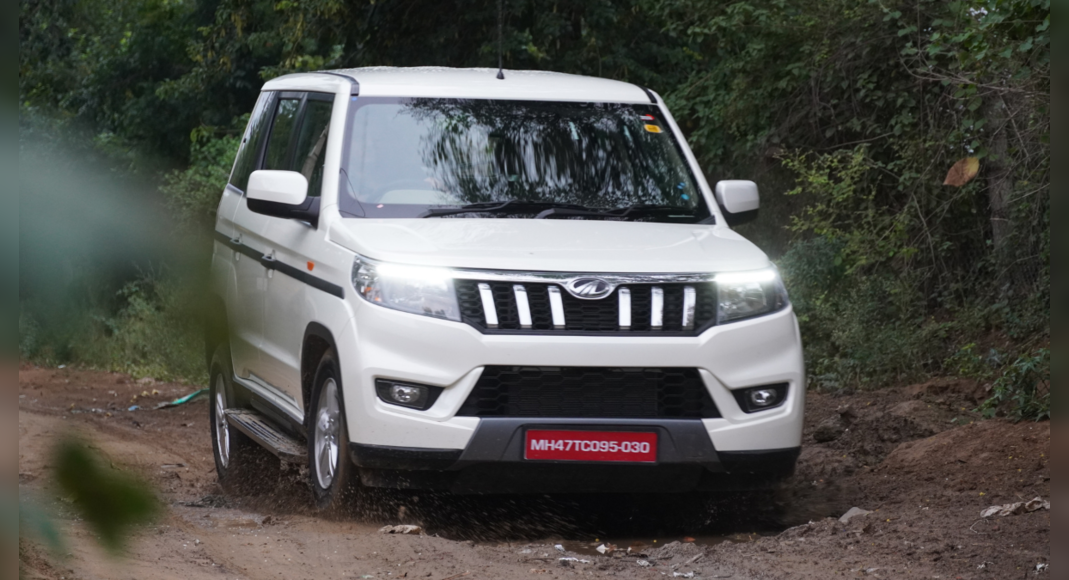NEW DELHI: In the last couple of years, Delhi barely witnessed rain.
When there is, the traffic turns chaotic.
This unpredictable and rare setup was formed ahead of my driving slot of the latest Mahindra SUV.
Just like how the rain surprised the weatherman on a bright sunny day, I had a similar glare in my eyes looking at the facelifted TUV300 rebadged as Bolero with a Neo suffix.
As I slowly tackled the slushy road heading to the venue, the singular unit of Neo docked in an inclined in the park grabbed my attention.
“Oh dear, you don’t call a cat a cheetah,” I whispered.
That’s how my encounter kicked off with the Bolero Neo, which essentially derives most of its design cues and visual characteristics from the discontinued TUV300.
Shorter overhangs, curvy edges, and the beefy C-pillar remind me of TUV300 more than the Bolero.
If you are disappointed with the looks of Bolero Neo, here’s what will restore your faith.
Bolero, which is one of the oldest SUV nameplates running on the road, isn’t departing just yet.
With Bolero Neo, Mahindra aims to capture new, progressive, young, and urban customers and will field both the SUVs sideways.
Compared to TUV300, there are revisions in the front fascia.
The 6-slat chrome grille and chunkier headlamp unit attempt to imitate Bolero.
Neo rides on 15-inch wheels and there is a black plastic strip running at the level of door handles.
The range-topping N10 trim also offers a side step, and a grey cap on the spare wheel mounted on the tailgate.
A roof rail, much like the TUV300, would have increased the appeal.
The new fog lamp design and skid plates lend balance to the evolving design.
Bolero Neo continues to be a 7-seater offering with side-facing the third row.
When left unutilized, the boot offers 384-liters of space.
The N4 (base) is wrapped with vinyl while the N8 and N10 get light-color fabric.
Mahindra’s Italian-affiliate Pininfarina has designed the interior and it comes with a satisfactory level of practicality and fit and finish.
Space on offer in the first and second rows will accommodate 5 people comfortably.
Features like 7-inch touchscreen with BlueSense connectivity suite, automatic AC, USB charging port and cruise control are offered in the N10 trim.
The plastics used on the dashboard are durable and the overall build quality is on the expected lines.
The steering column is only height-adjustable.
The view from the front row is wide, and it’s clear without much interference from the A-pillar.
Both the row passengers get adjustable headrests and armrests.
Under the hood is a 1.5-litre, mHawk diesel engine with a micro-hybrid.
The 100-bhp motor sends out power to the rear wheels and it is paired with a 5-speed manual transmission.
The engine mated to a 5-speed manual transmission surely feels more punchy and powerful than the 76-bhp oil burner on regular Bolero.
Refinement isn’t is something you would associate with the mHawk right away, but the tractability of the engine is commendable.
There is decent feedback starting from 1,500 rpm and pulls cleanly until 4,000 rpm.
The long gear throws also reduce the quick-shifting in bumper-to-bumper traffic.
The micro-hybrid tech cuts off the engine when idle in traffic.
The engine springs back to life as soon as you press the clutch and thereby helps in extracting slightly greater mileage.
The clutch is on the heavier side, however, the travel isn’t as deep as other Mahindra cars.
The company is also assessing the market demand for an automatic for the Bolero Neo.
The ride quality is on the bumpier side and is uncomfortable at low speed over bad roads.
Bolero Neo is more confident and poised over ruts, trails and broken patches at higher speeds.
Also, with the new diesel engine, Bolero Neo can be pushed harder on the highways.
The engine is largely stress-free till 120 kmph.
On the flip side, the 3-cylinder motor puts out mild vibrations on the clutch pedal while rolling the car from a standstill.
The body roll in the cabin is also significantly visible.
However, the seat bolstering seems to have improved, which restricts the lateral movement to an extent.
Braking is surely more assuring than the regular Bolero.
That said, Bolero Neo would be able to take you roads and paths most other subcompact SUVs can’t.
The third generation Mahindra chassis which underpins the likes of Scorpio and Thar is torsionally rigid and better compatible to take off-road beating.
Also, if you are opting for the N10 (O) trim at Rs 9.99 lakh (ex-showroom), Mahindra offers multi-terrain technology (MTT), which essentially acts as rear-locking differentials.
In terms of safety, Bolero Neo gets dual airbags, ISOFIX child mounts, reverse parking sensors, ABS with EBD, cornering braking control and engine immobilizer.
If you are planning to drive Bolero Neo more in the cities, I would recommend an aftermarket reverse camera.
The base model starts at Rs 8.48 lakh (ex-showroom), which is marginally expensive over the regular Bolero.
Is Neo worthy of choosing over the Bolero? The Bolero loyalist will find it hard to accept, especially with the heavy design inclination towards TUV300.
But let’s face it.
Bolero Neo or TUV300, whatever you call it, offers the engine, mechanicals and comfort that Mahindra will pass on to Bolero as well.
Does it give a solid reason to check out the Bolero Neo at your nearest dealership?







